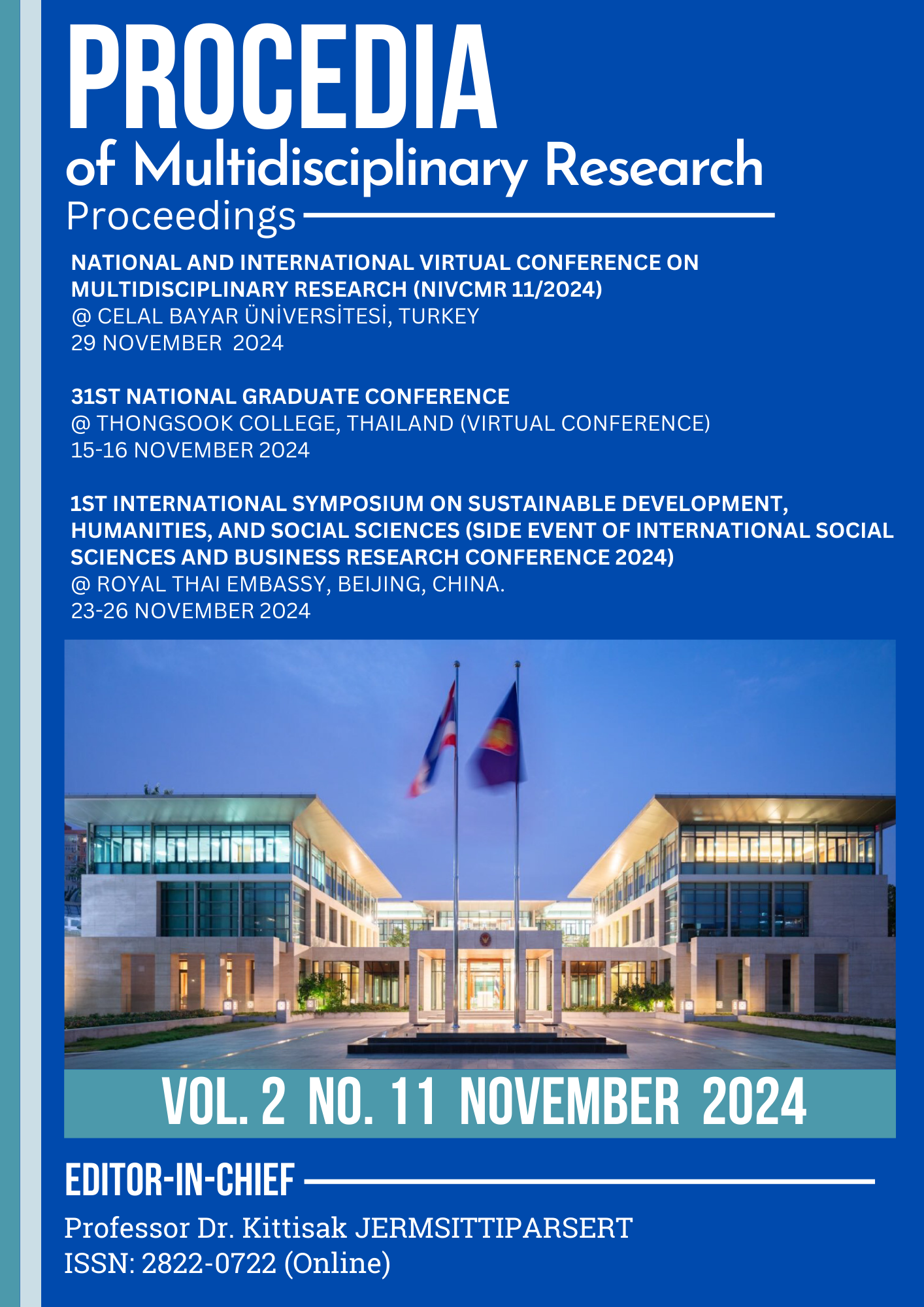A STUDY OF ACHIEVEMENT AND ATTITUDES FROM THE TRANSFER OF AR TECHNOLOGY UTILIZATION FOR UPPER ELEMENTARY SCHOOL STUDENTS IN THAILAND
Abstract
This study examined the effectiveness of an Augmented Reality (AR) technology curriculum for upper elementary students in Khlong Khuean District, Chachoengsao Province, Thailand. The research employed a one-group pretest-posttest design with a sample of 100 students from 5 schools. A 30-hour AR curriculum was developed, covering topics from basic AR concepts to safety and ethics. The curriculum's content validity was assessed by experts, with IOC values ranging from 0.67 to 1.00. Reliability tests yielded a Cronbach's alpha coefficient of 0.80. Results demonstrated significant improvement in students' learning achievement after completing the AR curriculum, with post-test scores significantly higher than pre-test scores (p ≤ .05). Furthermore, students exhibited strongly positive attitudes towards the AR curriculum, with high mean scores across all evaluation items. These findings suggest that the developed AR curriculum effectively enhances students' technological competencies and fosters positive attitudes toward AR technology. The study highlights the potential of AR as a tool for developing digital skills, creativity, and engagement among Thai youth. However, challenges such as equipment costs and the need for localized content should be considered in future implementations. This research contributes to the growing body of evidence supporting the integration of AR technology in education, particularly for developing 21st-century skills among students in Thailand. It provides valuable insights for educators and policymakers looking to implement innovative technologies in the classroom to prepare students for the digital future.
Downloads
Published
Issue
Section
License

This work is licensed under a Creative Commons Attribution-NonCommercial-NoDerivatives 4.0 International License.







.png)


